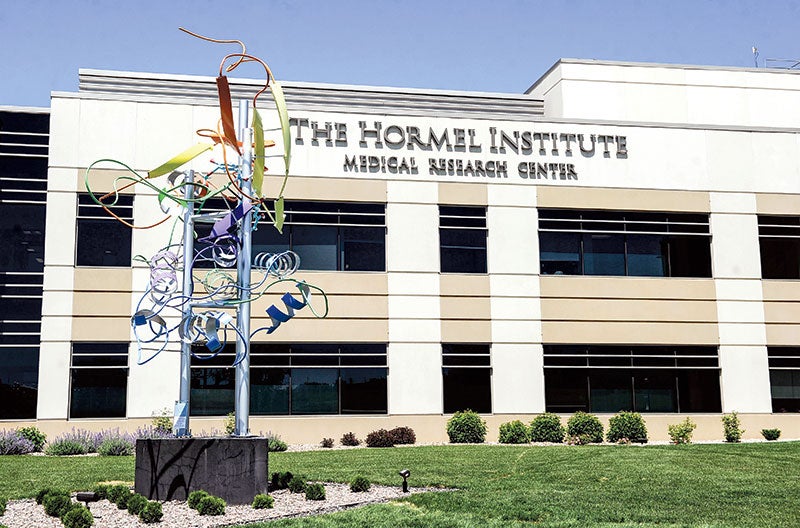Gov. Dayton seeks medical marijuana compromise after meeting with families
Published 9:42 am Friday, March 14, 2014
By Christopher Snowbeck
Pioneer Press, St. Paul, Minn.
ST. PAUL — The call to legalize medical marijuana may have new life at the Capitol.
After meeting with backers of a bill to make marijuana available for certain patients, Gov. Mark Dayton directed his chief of staff and health commissioner to see if a compromise agreement can be reached during the current legislative session, according to a statement issued Thursday afternoon.
The announcement punctuated a week with several twists and turns in the medical marijuana debate, including comments from Dayton earlier Thursday that predicted legislation wouldn’t happen this year.
“During the two-hour meeting, Gov. Dayton listened to the stories of each individual to better understand their needs and concerns,” spokesman Matt Swenson said in the statement. “The discussion also included a conversation about concerns that have been voiced by members of law enforcement and the medical community.”
“The governor said it was difficult to see that so many good Minnesotans are enduring such pain and suffering,” Swenson added.
On Tuesday, Rep. Carly Melin, DFL-Hibbing, postponed a hearing for her medical marijuana bill after failing to reach a compromise with law enforcement groups that are worried about a potential for abuse under the legislation. Dayton has signaled he would not sign a bill that’s opposed by law enforcement groups, and Melin said she didn’t see a way forward for the bill without public pressure on Dayton.
Her legislation would make marijuana available to people with conditions such as cancer, glaucoma, and HIV/AIDS, so long as doctors certified that patients might benefit.
With written certification, patients would apply to the Minnesota Department of Health for an ID card, which they would use at a new network of dispensaries or “alternative treatment centers” across the state. Patients could receive 2.5 ounces of usable marijuana.
Dennis Flaherty, executive director of the Minnesota Police & Peace Officers Association, said Thursday that he welcomed the governor’s announcement because state health officials would now get involved in the debate.
“We have said all along that this truly is a health issue for Minnesota,” Flaherty said. “Unfortunately, all of the people in the health community — up to this point, they’ve been hiding while this discussion has been going on.”
The Minnesota Medical Association has not taken a position on Melin’s bill. The group’s board of directors will consider doing so on Saturday, said Dan Hauser, a spokesman for the group, although he said the medical association might still remain neutral on the idea.
Surveys of physicians so far have shown opposition to the bill, Hauser said, adding that the association’s public health committee this week recommended that the board oppose the legislation.
“They want there to be more research on the medicinal usages,” Hauser said.
During a call with reporters earlier Thursday, the governor aired concerns about the government’s ability to oversee distribution and about whether there has been adequate research to determine what doses are effective or dangerous, according to the Associated Press. Dayton said any bill allowing smoking of marijuana “is just not going to happen” this year.
Dayton, who is recovering from a February hip surgery, invited medical marijuana supporters inside the Governor’s residence to make their case. They had gathered outside the gates to deliver an oversized greeting card urging him to “stop bowing to law enforcement.”
Toward the end of the call with reporters, Dayton scrambled to clarify a remark that at first appeared to advocate people who want marijuana for medical reasons take their chances and buy it on the street.
“The fact is you can go out in any city in Minnesota, I’m told, and purchase marijuana. And if you possess less than an ounce of it, an ounce-and-a-half of it, it’s a petty misdemeanor. It’s a traffic ticket,” Dayton said, according to AP.
When pressed on that comment, Dayton said drug dealers should be fully prosecuted and that people buying marijuana take on risks of their own.
“I’m saying the law is the law. A petty misdemeanor for less than an ounce-and-a-half, then that’s the way the law reads and that’s what it should be. If you’re transporting large amounts of marijuana or any other illegal substance in this country then you should be apprehended and prosecuted,” he said, according to AP.
“I’m not advocating anybody do whatever it is they do. I’m just pointing out the reality in our society.”
A health policy committee in the House voted to endorse Melin’s bill earlier this month.
To address concerns from law enforcement, Melin said she offered to drop bill provisions that would have allowed some patients to grow marijuana plants at home. She also offered to prohibit smoking marijuana, while allowing use by vaporization.
But law enforcement groups said the concessions didn’t go far enough, since patients still could use medical marijuana for post-traumatic stress disorder and conditions that result in intractable pain. Those uses have the potential for abuse, law enforcement officials say.
—Distributed by MCT Information Services




